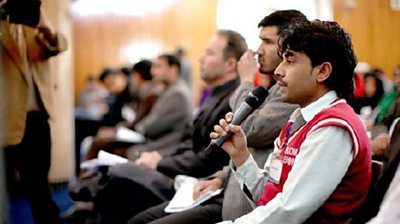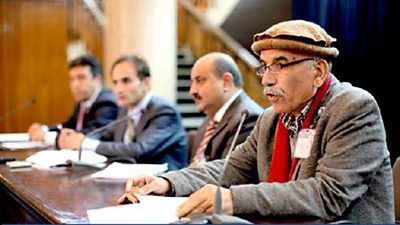If we join our voices we can be much stronger and much more effective.
In 2001 there was no media to speak of in Afghanistan. Today the dynamic and diverse Afghan media sector employs an estimated 10,000 people. However, with international donors beginning to draw down support, the country and its media are at a critical turning point.
In March 2013, ���˿��� Media Action and Internews facilitated a media conference in Kabul which aimed to encourage an inclusive and lasting dialogue among Afghan media leaders and representatives. The response from Afghan media leaders was so strong and the event so successful that a two-day conference is being planned as a result.
A fragile future
Over 100 people attended the 2013 conference, including representatives from the Afghan government, key Afghan media houses and a small number of international organisations. It built on ���˿��� Media Action’s policy briefing The Media of Afghanistan, which analysed the uncertain future facing the sector as international military forces prepare to withdraw in 2014.
The policy briefing’s findings were presented as a launching pad for debate. After an opening speech by the Minister of Information and Culture, H.E. Dr Sayed Makhdoom Raheen, major issues facing the Afghan media sector were discussed. These included a media code of conduct, media regulation, the public broadcaster and national identity, media sector coordination and accountability, sustainability, journalists’ safety and protection and the future of print media and social media.

Inclusive debate
All participants of the media conference agreed that an inclusive and Afghan-led debate about media in the country was long overdue – and that this conference should be the first of many.
Fahim Dashti, from Afghanistan's National Journalists Union and Afghanistan Journalists Federation, said, "I hope we have learned that by being scattered and divided we are weak and less effective. But if we join our voices we can be much stronger and much more effective."
The conference also recommended that future events should involve more media representatives from Afghan provinces, additional international organisations and donor agencies, as well as key government ministries. A full report from the event can be downloaded below.
Following these recommendations, the 2014 event will invite a much larger number of media leaders and representatives from across the country, and agree concrete actions to preserve Afghanistan’s media and sustainability.
